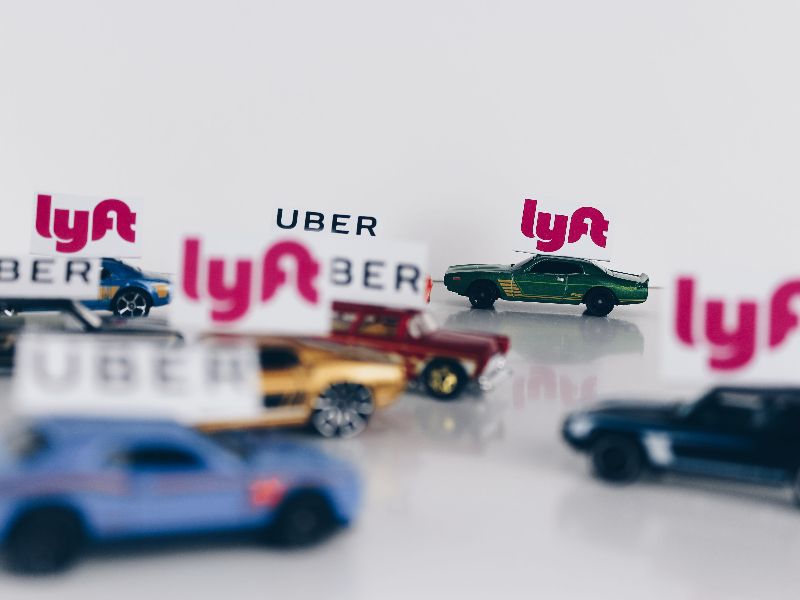How to turn housing from political hot potato to comfort food

A little bit of politics
It is not often that we at Twindig get political, but after watching a very heated exchange between the Prime Minister, Boris Johnson and the Leader of the opposition Keir Starmer, at Wednesday’s Prime Minister's Questions, we couldn’t help but think that we could heal the rift between the two and turn property from a political hot potato into comfort food for all.
Will we have to sell our homes to pay for care?
In a heated debate, Keir Starmer started boldly:
‘I want to ask the Prime Minister about the promise he made to the British people to guarantee that no one needing care has to sell their home to pay for it. Does that guarantee still stand?'
He was not satisfied with the Prime Minister’s response:
‘I notice the Prime Minister didn’t stand by his guarantee that no one will need to sell their home to pay for care.’
And he had his reasons for thinking why he did not stand by his guarantee:
'Let me explain why he didn’t. Under the Prime Minister’s plans someone with £186,000 if you include the value of their home, and that is not untypical across the country facing large costs because they have to go into care will have to pay £86,000 under his plan and that is before living costs. Where does the Prime Minister think they are going to get that £86,000 without selling their home?'
The Prime Minister responded that the private sector and the financial services industry has time to supply the insurance products that people need to provide for the costs of care.
Mr Starmer was not convinced by the answer adding that:
'The truth is his plans do not do what he claims, people will still face huge bills, many homeowners will have to sell their homes, he is not denying it and he could have done'
Does Care begin at home or end in a home?
The problem facing the UK at large is that we have an ageing population, we are living longer, but our healthy life span is not keeping pace with our overall life spans. With each passing year, more of us will need care and we will need it for longer than those that went before us.
The question is how do we pay for it?
For the majority of those who own property, property is their biggest asset. Data from the latest UK Government Wealth and Assets Survey reports that a person in the 5th wealth decile has:
Housing wealth of £105,000
Financial wealth of £14,000
Physical wealth of £42,900
Pension wealth of £72,900
Their financial and physical wealth is not sufficient to meet the potential Care bill of £86,000, falling almost £30,000 short and it would be unwise to allocate £30,000 of a £72,900 pension pot to care bills when the average adult believes they will have 23 years of retirement to fund.
It is easy to see why many believe that many adults will need to sell their homes to pay for their care, but is there a better way?
Use is more important than ownership

We live in a world where few of us own music, rather we ‘use streaming services to give us access to a much wider catalogue than we could afford. We live in a world where increasing numbers of us do not own cars, we use Uber or sharing services such as Zipcar.
Could we look at housing in the same way to solve the care crisis?
Those aged 65 or more are most likely to need care, and those aged 65 or more are most likely to own their homes. Homes are for many their biggest asset, but they are also very illiquid, you either own it or you don’t.
However, we believe that fractional ownership would allow homeowners to access the amount of housing wealth they need when they needed it. According to the Halifax, the price of the average home in the UK is £262,954 and 8.3 million homes across the UK (mostly those owned by older people) are owned without a mortgage.
We believe it should be possible for a homeowner to sell part of their home, to truly release equity, rather than use equity release, which actually means taking on debt rather than releasing equity. In this scenario, a retired homeowner could release £86,000 to pay for care and still own 67% of their home. They get to benefit from the housing wealth they have accumulated, rather than being forced to sell their home before they want to at a time when their quality of life is already starting to wane.
The triple lock of social good from fractional homeownership

We believe that fractional homeownership offers the British people a triple lock of social good:
Lock 1: Allows those who need to access their housing wealth to access it
Lock 2: Allows those who cannot afford a home to accumulate housing wealth without the need to saddle themselves with a large mortgage
Lock 3: Fosters financial common sense. Most of us do not save enough for our pensions, but without being told, encouraged or nudged we do invest in property. Fractional ownership can turn property (that we do invest in) into pensions (that we do not invest enough in) this allows households to finance their retirement and later life without Government carrots or sticks and is also likely to reduce the call on the common purse.
In conclusion, by thinking of property differently we can, via fractional ownership, turn property from a hot political potato into comfort food for all.